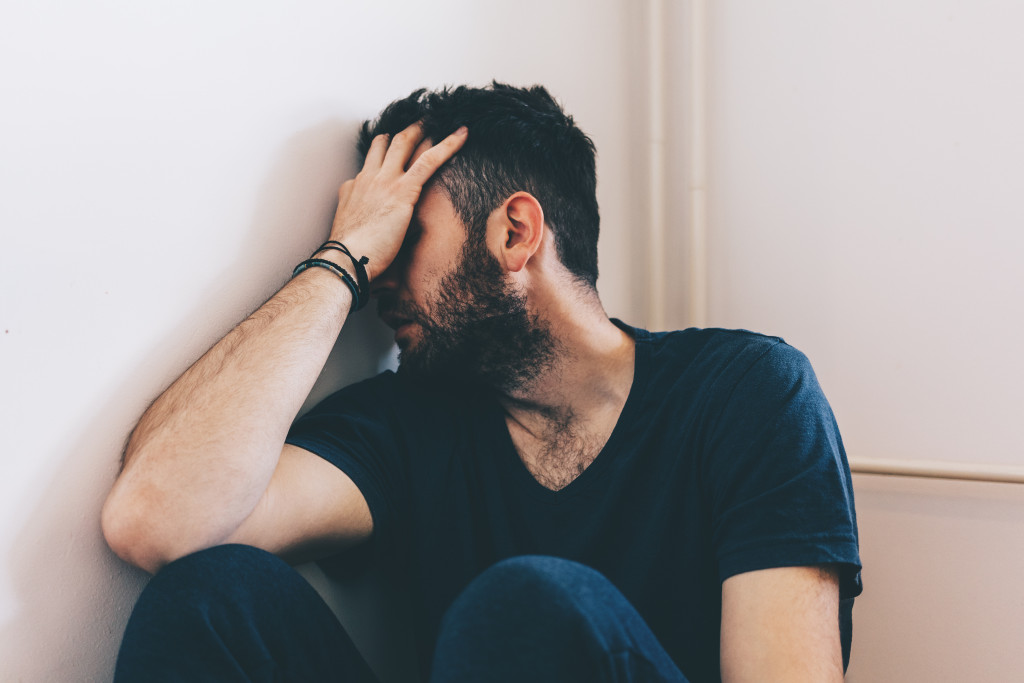Mental health is a state of well-being where individuals are able to realize their potential, cope with stress from daily life, work productively and fruitfully, and contribute to their community. It is not just the absence of mental illness.
But mental health is a complex topic. And just like physical health, it can deteriorate. There are many signs that your mental health may be deteriorating. Here are some of them:
1. Feeling like you’re constantly under pressure or stressed
Feeling like you’re under constant pressure or stress is one of the most common signs of deteriorating mental health. When you feel under pressure, your body releases hormones like cortisol and adrenaline, which can hurt your physical and mental health.
Over time, this can lead to problems like anxiety, depression, heart disease, and even obesity. If you’re feeling stressed constantly, it’s essential to take steps to relax and reduce the amount of pressure you’re under. It might involve exercise, relaxation techniques, or talking to a therapist. If you’re struggling to cope with stress, don’t hesitate to seek professional help.
2. Increased use of alcohol, drugs, or cigarettes
If you find yourself using alcohol, drugs, or cigarettes more often, it could signify that your mental health is deteriorating. Sufferers can use these substances to cope with stress, anxiety, or depression. However, they can also make these conditions worse.
If you’re using alcohol or drugs to cope with mental health problems, it’s essential to seek professional help. Many treatment options are available, from private rehab centers to therapy, that can help you cope with your problems without resorting to substances.
3. Withdrawing from friends and activities you used to enjoy
One of the most common signs of deteriorating mental health is withdrawing from friends and activities you used to enjoy. This can be a sign of depression, anxiety, or other mental health problems. It can be hard to muster up the energy to see friends or do things you enjoy when you’re feeling down.
If you’re withdrawing from your social life, it’s essential to take steps to re-engage with the world. This might mean making an effort to see friends, joining a club or group, or taking up a new hobby. Don’t be afraid to ask for help from friends or family if you’re struggling to take these steps.

4. Changes in your eating and sleeping patterns
Changes in your eating and sleeping patterns can signify deteriorating mental health. Hormones like cortisol and adrenaline control appetite and sleep. When you feel stressed or anxious, these hormones can cause changes in your eating and sleeping habits.
For example, you may find yourself overeating or losing your appetite. You may also struggle to sleep or wake up frequently during the night. These changes can hurt your physical and mental health. If you’re experiencing these changes, talk to your doctor or mental health professional.
5. Feeling hopeless, helpless, or worthless
One of the worst symptoms of deteriorating mental health is feeling hopeless, helpless, or worthless. These thoughts and feelings can be paralyzing. They can make it hard to get out of bed in the morning or take care of yourself.
Some people may feel worthless because they can’t do anything right. Others may feel like the world is against them and that there’s no point in trying. If you’re feeling hopeless, helpless, or worthless, it’s essential to seek professional help. You can treat these thoughts and feelings with therapy, medication, and other treatments.
6. Experiencing negative or intrusive thoughts more often than usual
Negative or intrusive thoughts are another common symptom of deteriorating mental health. These thoughts can be about yourself, your life, or the world around you. They can be so debilitating that they make it hard to function daily.
If you’re experiencing negative or intrusive thoughts more often than usual, it’s essential to talk to your doctor or mental health professional. These thoughts can be a sign of depression, anxiety, or other mental health problems but can be treated with therapy, medication, and other treatments.
7. Feeling like there’s no point in living anymore
Feeling like there’s no point in living anymore is one of the most severe symptoms of deteriorating mental health. If you’re feeling this way, it’s essential to seek professional help immediately. This thought can signify suicidal ideation when someone is considering suicide.
If you feel like there’s no point in living anymore, it’s essential to immediately seek help from a mental health professional or a suicide hotline. You can also talk to your doctor or primary care provider about your thoughts and feelings.
If you also know someone struggling with their mental health, it’s essential to be there for them. You can offer support and understanding, and you can also help them get professional help if they need it.
These signs and symptoms can be challenging to deal with, but it’s important to remember that help is available. If you or someone you know is struggling with their mental health, resources are available to help. You can talk to your doctor or mental health professional or call a suicide hotline.






